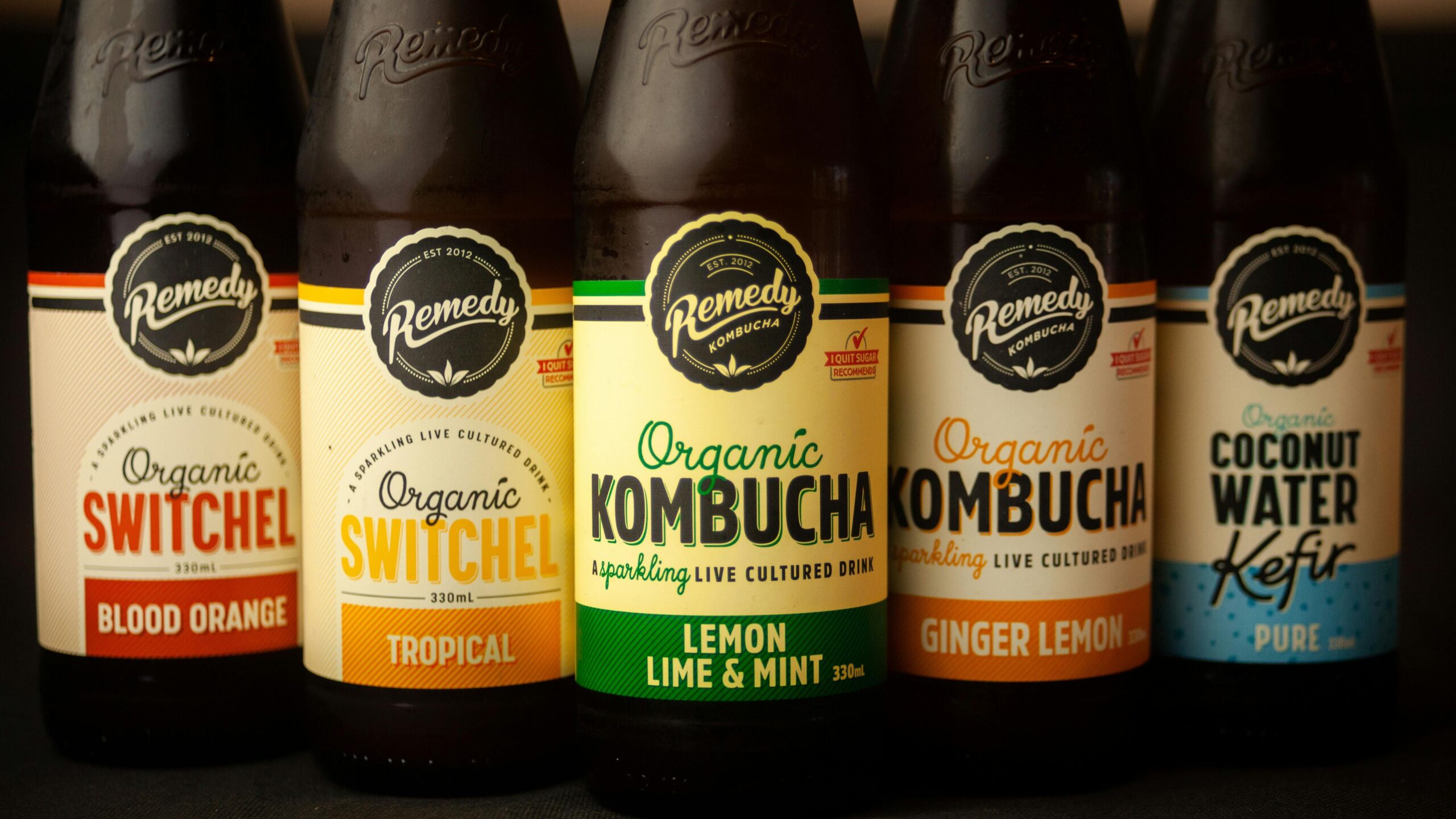A new sensation sweeping India is kombucha, a sweet, carbonated fermented tea that combines ancient traditions with modern wellness. Originally invented in 221 BC in the Bohai Sea district of China, the drink is now enjoyed by many health-conscious Indians. With its massive popularity, kombucha today symbolizes a fusion between old and new paradigms, as well as between East and West in the quest for health and longevity.
Making Kombucha
The appeal of kombucha lies in its fermentation process: alcohol, lactic acid, and acetic acid fermentations, all orchestrated by SCOBY (symbiotic culture of bacteria and yeast). In this way, the tea’s sugars are broken down by SCOBY, resulting in a tart, effervescent drink packed with organic acids, vitamins, minerals, and over fifty probiotic strains. Consequently, this makes it not only refreshing, but also has potential benefits for human health.
The global kombucha market was estimated at $1.67 billion in 2019 and is projected to reach $9.7 billion by 2030 according to reports published by a market research firm.
Local flavours and inclinations
In India, people have fully embraced kombucha and given it an Indian twist. Some of the popular flavors in India include ginger, pineapple, strawberry, apple, and the ever-refreshing orange. With every sip you take, this has a tangy, citrusy orange flavor that is particularly refreshing.
In addition to these common fruits, kombucha has been incorporated into Indian fermented foods. For example, many consider kanji to be a North Indian version of kombucha because it is made with black or red carrots, beets, mustard seeds, and a bit of hing (asafoetida). This regional twist introduces more alcohol content, making it a favorite traditional drink for those who prefer trendy things.
Health benefits
Due to its high concentration of probiotic bacteria, kombucha has been associated with certain health benefits. Probiotics are sometimes referred to as “friendly” bacteria that help maintain gut health by maintaining a balanced community of microorganisms in the digestive system. Studies suggest that such balance can improve immune function and even influence mental health with regards to alleviating depression.
Not only is kombucha beneficial for the gut, it also contains acetic acid, which has antimicrobial properties that reduce infection risks. It’s also packed with antioxidants that may protect the liver from damage; some preliminary studies even suggest it could help with type 2 diabetes, though further research, particularly with humans, is needed.
Growing market
Kombucha’s transformation from an ancient Chinese remedy to a global wellness phenomenon has been astonishing. In India, the kombucha market is experiencing rapid growth driven by local brands offering a variety of products due to increased consumption. Prices differ as some artisanal drinks can cost as much as Rs 300 per bottle while others are priced lower, such as those available on e-commerce platforms.
This trend can also be seen in India, where it has become an alternative drink in bars and restaurants instead of soft drinks or even alcohol.
Journey
For many Indians, learning about kombucha isn’t just about trying a new drink; it’s an opportunity to embrace a lifestyle that prioritizes health and wellness. Take, for example, Priya, a 32-year-old marketer in Mumbai. She first discovered kombucha at a wellness retreat and was immediately fascinated by its taste and potential health benefits. Now, Priya makes her own kombucha at home, trying out different flavors, like mango and turmeric, to match her tastes.
For Priya, kombucha is not just a drink, but a part of her daily routine, which links her to the global conscious eating and living movement. Her story is similar to that of thousands of people across India who are now opting for the refreshing and healthy option of kombucha instead of sugary soft drinks and energy drinks.
Disclaimer:
The information contained in this post is for general information purposes only. We make no representations or warranties of any kind, express or implied, about the completeness, accuracy, reliability, suitability or availability with respect to the website or the information, products, services, or related graphics contained on the post for any purpose.
We respect the intellectual property rights of content creators. If you are the owner of any material featured on our website and have concerns about its use, please contact us. We are committed to addressing any copyright issues promptly and will remove any material within 2 days of receiving a request from the rightful owner.

